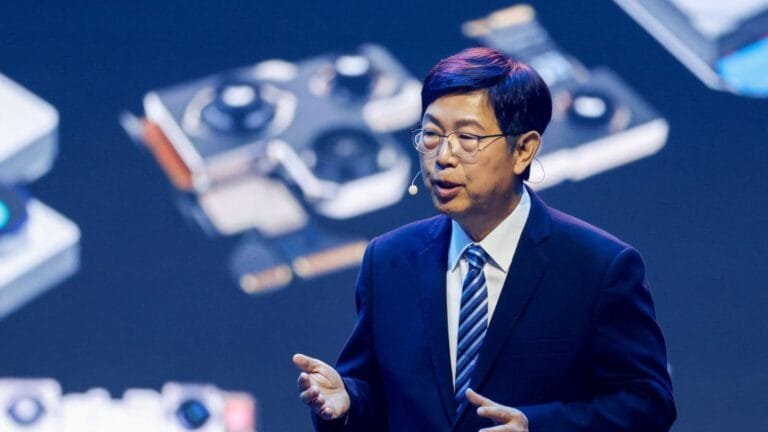Gallium is a critical mineral used in semiconductor chips, now temporarily cleared for export by China.
What is the significance of these minerals China gallium export ban?
First, let’s understand what gallium, germanium, and antimony are. These are not ordinary metals. Gallium is a rare metal extracted from aluminum ore; it is so soft that it melts when held in the hand. Germanium is found in coal and zinc ores. Antimony is found in silver ore. These three are called ‘critical minerals,’ and look at their uses. Gallium is used in making semiconductor chips, which are used in mobile phones, computers, and military equipment.
Germanium is essential in fiber optic cables and infrared lenses. Antimony is used in batteries, flame retardants, and alloys. China controls more than 90% of the world’s supply. Superpowers like the US depend on them. If the supply stops, technological production could come to a standstill. Furthermore, these minerals are ‘dual-use items,’ meaning they are used in both civilian and military sectors. Therefore, governments impose strict controls on their export. China has designated them as strategic resources.
Background of the US-China Trade War
Now let’s talk about the history. A trade war has been ongoing between the US and China since 2018, initiated by Donald Trump. He imposed heavy tariffs on Chinese products. The reasons? China’s trade surplus and allegations of intellectual property theft. Joe Biden continued this. But when Trump returned to power in 2024, he further intensified the restrictions, and China retaliated with its own sanctions. In December 2024, China’s Ministry of Commerce announced a complete ban on the export of gallium, germanium, and antimony to the US.
This followed increased controls on rare earth elements in October 2024. Strict scrutiny was also imposed on graphite exports. The US had imposed restrictions on chip exports, for example, on Huawei. This cycle continued, but then the situation changed in 2025. In November, President Xi Jinping and Trump held talks. Both sides agreed to reduce tariffs and suspend trade measures for one year, to which Trump said, “We want a deal with China.” Xi responded, “Peace and cooperation are essential.” This agreement came into effect on Monday.
Details of the Sanction Suspension
China’s Ministry of Commerce issued a statement on November 9th. It stated that the export restrictions to the US on dual-use items related to gallium, germanium, antimony, and superhard materials were being suspended. However, this suspension will begin on Sunday (November 10, 2025). The end date? November 27, 2026. That’s a full year. The ministry also eased restrictions on graphite exports. Previously, there were strict end-user checks. Now, those too have been suspended. Other controls were suspended on Friday, but the ministry’s statement was clear regarding rare earth and lithium battery materials.
Despite this, this step is in line with a mutual agreement. Why was this decision made? Experts say China wants to get its economy back on track, and increasing exports is essential amidst a global recession. The US was facing a shortage of chip supplies. Companies like Intel and Nvidia were affected. The Trump administration exerted pressure. The result? This temporary relief.
The Technological Importance of These Minerals
Let’s delve deeper. The semiconductor industry depends on these. Gallium nitride (GaN) chips are used in 5G networks and electric vehicles. Germanium is used in solar panels and sensors, and antimony goes into lead-acid batteries. In the global market, the value of gallium reached $500 per kilogram in 2025. Germanium $1500. Antimony $12. But shortages could double prices. What is the US problem? Domestic production is negligible. According to the US Geological Survey, China controls 98% of gallium. The US imports from Canada and Australia, but it’s not enough. The restrictions could have reduced chip production by 20%. Now, the suspension will provide relief. And the benefit for China? Exports will bring in foreign currency. 2024 If these minerals generated $5 billion in revenue, the suspension could double that. But China is cautious. It is increasing its domestic reserves.
Impact on Global Supply Chains of China gallium export ban
This decision is not limited to the US and China. The whole world will be affected. European companies like ASML, which manufacture chip-making machines, depend on these materials. India too. Our semiconductor mission requires these minerals. Tata and other companies could be affected. However, Japan and South Korea are the most concerned. They are the kings of chip manufacturing. Sony and Samsung would suffer from a disruption in supply, although the suspension will now stabilize the market. There is enthusiasm in the stock market. The Nasdaq index rose 2%. Also, consider some environmental aspects. Mining these minerals causes pollution. Rivers in China are being polluted. The suspension will increase mining. But control is necessary.
Impact on American Industry
There is a wave of happiness in America. The Chip and Semiconductor Association welcomed it. They said, “This is a boon for our members.” Intel announced increased investment, a $100 billion plan. Despite this, challenges remain. Trump promoted domestic mining. New mines in Arizona. But it will take 5-10 years. Until then, imports are necessary. The suspension is temporary. What after 2026? Uncertainty remains, along with China’s strategy, which could be aggressive or defensive. This move by China seems defensive. It knows that the US is investing $52 billion through the CHIPS Act. China cannot be left behind. He is buying mines in Africa and Latin America, cobalt in Congo, lithium in Bolivia, yet Xi Jinping’s ‘Made in China 2025’ plan remains strong. He is developing indigenous technology. Huawei has started manufacturing GaN chips. The lifting of sanctions benefits China, but in the long run, self-reliance.
Future Prospects of China gallium export ban
Will this bring lasting peace? Probably not. Trump’s policy is ‘America First’. He may increase tariffs. But negotiations will continue. The next meeting is at the G20. Decisions will be made there, and scientifically, alternative materials are being explored. Silicon carbide is an alternative to GaN, but it’s expensive. Research will increase, along with opportunities for India. We can do ‘friendshoring’. Partnership with America, a chip plant in Tamil Nadu. Importing these minerals will be easier, and in conclusion, a new chapter.
This suspension is a positive step in US-China relations. But caution is necessary. The trade war will be long. Cooperation in the technology sector is essential because the world is interconnected. One country’s decision affects everyone. Let’s hope peace prevails.






